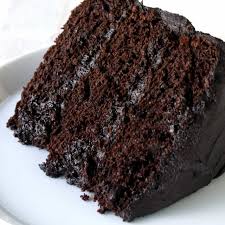What Is Dutched Cocoa?
Sep 09, 2021
Have you ever seen a piece of chocolate cake that is so dark brown that it’s almost black, and then been surprised when it didn’t taste as chocolatey as its color led you to believe it would? Or have you perhaps ordered a hot chocolate and had it taste, well, not as flavorful as the hot chocolate you’re used to? It’s possible that the cocoa powder used in these treats was Dutched. What does that mean? How does Dutched cocoa differ from regular cocoa, and when and how is it used?

Quick Review of What Cocoa Powder Is
Before we dive in more deeply, let’s review what cocoa powder is. It’s what’s left when much of the cocoa butter has been pressed out of the cocoa nibs. Because cocoa powder contains much less cocoa butter than chocolate, it’s less fatty, and it’s often easier to use in baking and drinks.
What’s with the Name?
Let’s start with the name of this type of cocoa powder. Although many people mistakenly call it Dutch cocoa, it’s properly called either Dutched cocoa or Dutch-process cocoa. The man who came up with the idea for it was a Dutch chemist named Coenraad Van Houten. He was interested in discovering a chemical process that would help reduce some of the naturally occurring bitterness in cacao.
How the PH of Cacao Affects Flavor
The bitterness in cacao can be manipulated during the many steps of making chocolate. How cocoa beans are fermented, roasted, ground, and conched all affect the bitterness of the end product. But Van Houten wanted another option. He realized that if he washed cocoa beans with a potassium carbonate solution, which is alkaline, he could reduce the acidity and increase the pH to a neutral 7 (on the base/acid scale that goes from 0 to 14).
Alkalizing cocoa powder changes it in a couple of other ways too. It makes the cocoa powder darker—even to the point that it is almost black, which is sometimes referred to as super Dutched. And it strips out some of the flavor, not surprisingly. So while many of us would think that the darker the color, the deeper the chocolate flavor would be, as is often true for natural (non-Dutched) chocolate, in fact, the opposite is true here.

When to Use Dutched Cocoa Powder
Why would anyone want to use Dutched cocoa powder when it tastes less chocolatey? It could be that the person cooking prefers the darker, richer color and milder taste, or it could have to do with another characteristic of cocoa that has gone through the alkalizing process: it becomes easier to dissolve in liquids. So it makes a lot of sense that drink mixes often contain Dutched cocoa powder.
The Importance of Following the Recipe
A final difference between Dutched and natural cocoa is critical to know if you are planning to bake with cocoa powder. If you’re making a cake or a brownie, you want it to rise, correct? And that’s why most recipes for leavened foods contain either baking powder or baking soda. But Dutched cocoa works best in recipes that contain baking powder, not baking soda. Why is this true?
What causes baked goods to rise is little carbon dioxide gas bubbles that are created by the combination of sodium bicarbonate (which is an alkali, or base), an acid (such as vinegar, buttermilk, sour cream yogurt, or cream of tartar), and a liquid. Baking soda is pure sodium bicarbonate, which is base, whereas baking powder is sodium bicarbonate plus cream of tartar, a base plus an acid. We’ve already said that Dutched cocoa is alkaline, meaning it needs something acidic added to it: adding the baking soda won’t do the trick. So, if baking with Dutched cocoa, baking powder, which contains the acidic cream of tartar, needs to be used instead of baking soda unless there are other adjustments made to the recipe. This image, from The Sugar Geek Show, illustrates the different rise one gets when using Dutched cocoa with baking powder versus baking soda.

And there you have it! Be sure to read this blog post, https://tanglechocolate.com/blogs/news/crash-course-in-cocoa, if you want to know about the cocoa butter that is extracted when cocoa powder is made.
Images: cake slice: thestayathomechef.com, pH scale: sciencenewsforstudents.org, cakes: sugargeekshow.com
https://www.kingarthurbaking.com/blog/2020/07/15/dutch-process-vs-natural-cocoa
https://www.scienceworld.ca/stories/what-does-baking-soda-do/
https://www.foodrepublic.com/2016/12/05/what-is-dutch-process-cocoa/

